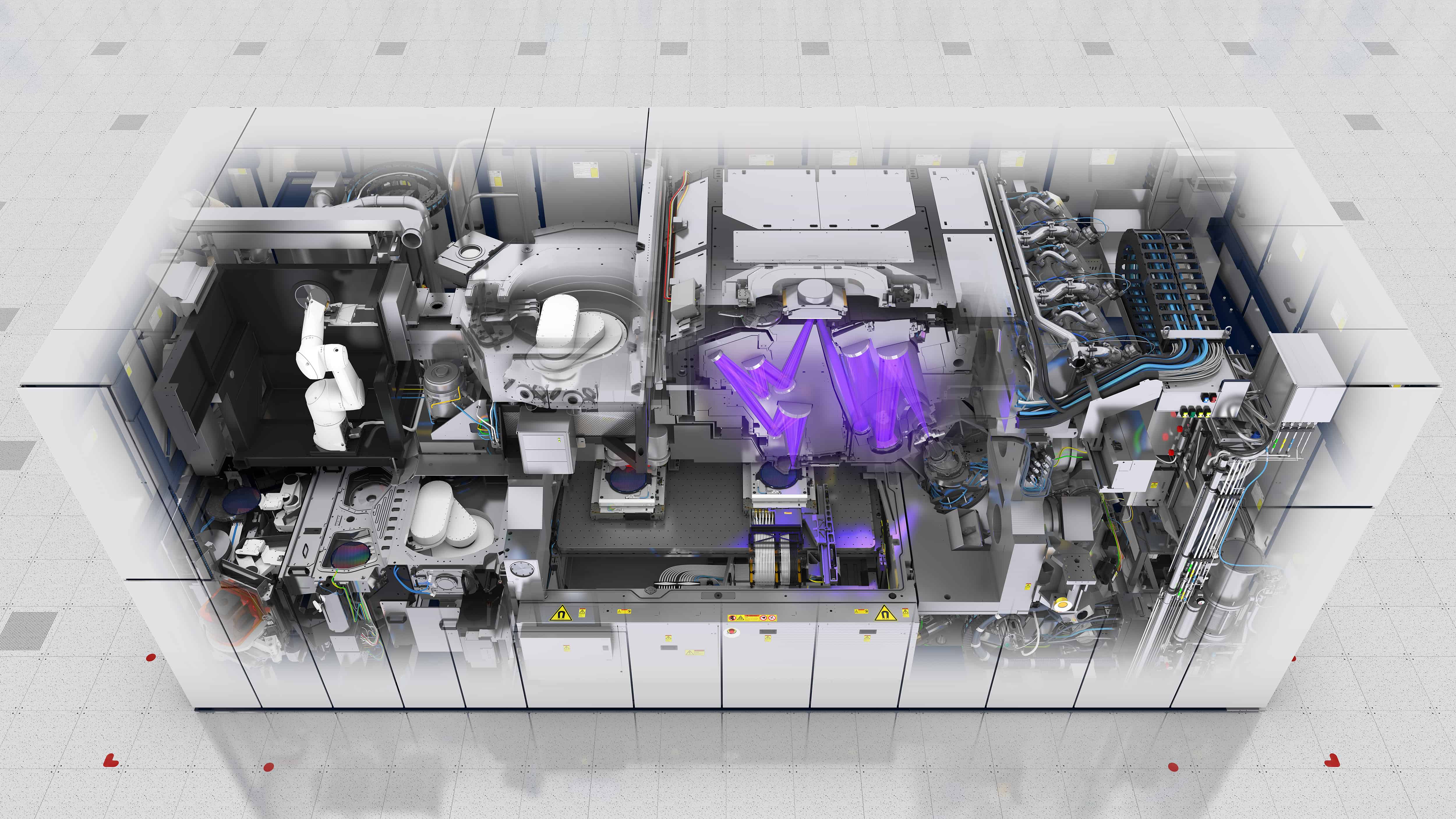
It was expected for a while, but now it is official: the Dutch cabinet is imposing new restrictions on ASML‘s export of chip machines to China. Minister Schreinemacher for Foreign Trade and Development Cooperation announced the decision today. In doing so, she spoke of “national additional export control measures of advanced semiconductor production equipment.” A ban was already in place for extreme ultraviolet (EUV) machines; the same now applies to the slightly less advanced deep ultraviolet (DUV) machines.
ASML currently produces eleven different DUV machines. Some of the older models are now forced to go through the licensing system, but the cabinet has not yet announced exactly which machines are covered.
With the measure, the cabinet wants to prevent sensitive technology from getting into the hands of China. The decision comes after months of mounting pressure from the United States. The officials say that semiconductors are of great strategic importance for future military and civilian applications. The Netherlands, mainly thanks to ASML and its supply chain, plays an essential role in this value chain worldwide. The U.S. market authority has claimed that China wants to use the technology for artificial intelligence, advanced weapons, and mass surveillance. Some 15 percent of ASML’s sales comes from China. According to ASML’s CEO Peter Wennink, U.S. companies have already benefited from restrictions on EUV machines.
National security
“Given the technological developments and geopolitical context, the cabinet has concluded that it is necessary for national security to expand the existing export control of specific semiconductor manufacturing equipment,” the minister wrote to the House of Representatives. “To this end, the Cabinet will submit proposals to control these high-value technologies internationally. At the same time, the Cabinet will also take the necessary steps nationally and in the EU context.”
The Cabinet has defined three strategic goals around (inter)national security:
- Preventing Dutch goods from contributing to undesirable end uses, such as military deployment or in weapons of mass destruction;
- Preventing undesirable long-term strategic dependencies;
- Maintaining Dutch technological leadership.
The measures are part of a package around the semiconductor value chain. These include the protection of specific technologies, such as the investment test and knowledge security measures. Schreinemacher says measures are also needed to maintain technology leadership. “For example, specifically for the semiconductor sector, the Chips Act is being worked on in the European context.”

When assessing an export license application, the government wants to make specific considerations on a case-by-case basis. “The government analyzes the risk of jeopardizing one or more of the strategic goals, taking into account, among other things, the product’s characteristics to be exported, the applicability of the product, the end user, and the country of destination.”
The export restriction involves “specific technologies in the semiconductor production cycle on which the Netherlands has a unique and leading position, such as state-of-the-art Deep Ultra Violet (DUV) immersion lithography and deposition.” These technologies play a crucial role in the production of advanced semiconductors. The government says it wants to avoid any disruption of value chains and consider the international level playing field.
Wassenaar Arrangement
The Netherlands would have preferred to regulate the measures through the multilateral export control regime, the Wassenaar Arrangement (WA), but there is no chance of that happening. “Decision-making in the WA is by consensus. However, the chances of reaching a consensus are currently slim. The changed geopolitical context is expected to affect the regime, as the Russian Federation is also a member and may block the proposal.”
Hence, the choice of an initiative by the Netherlands on its own, which other countries can join. But even that is not expected to happen soon. “This advanced semiconductor manufacturing equipment is only present in a limited number of countries worldwide, which means that for many member states, there is no immediate reason to have a similar licensing requirement.”







